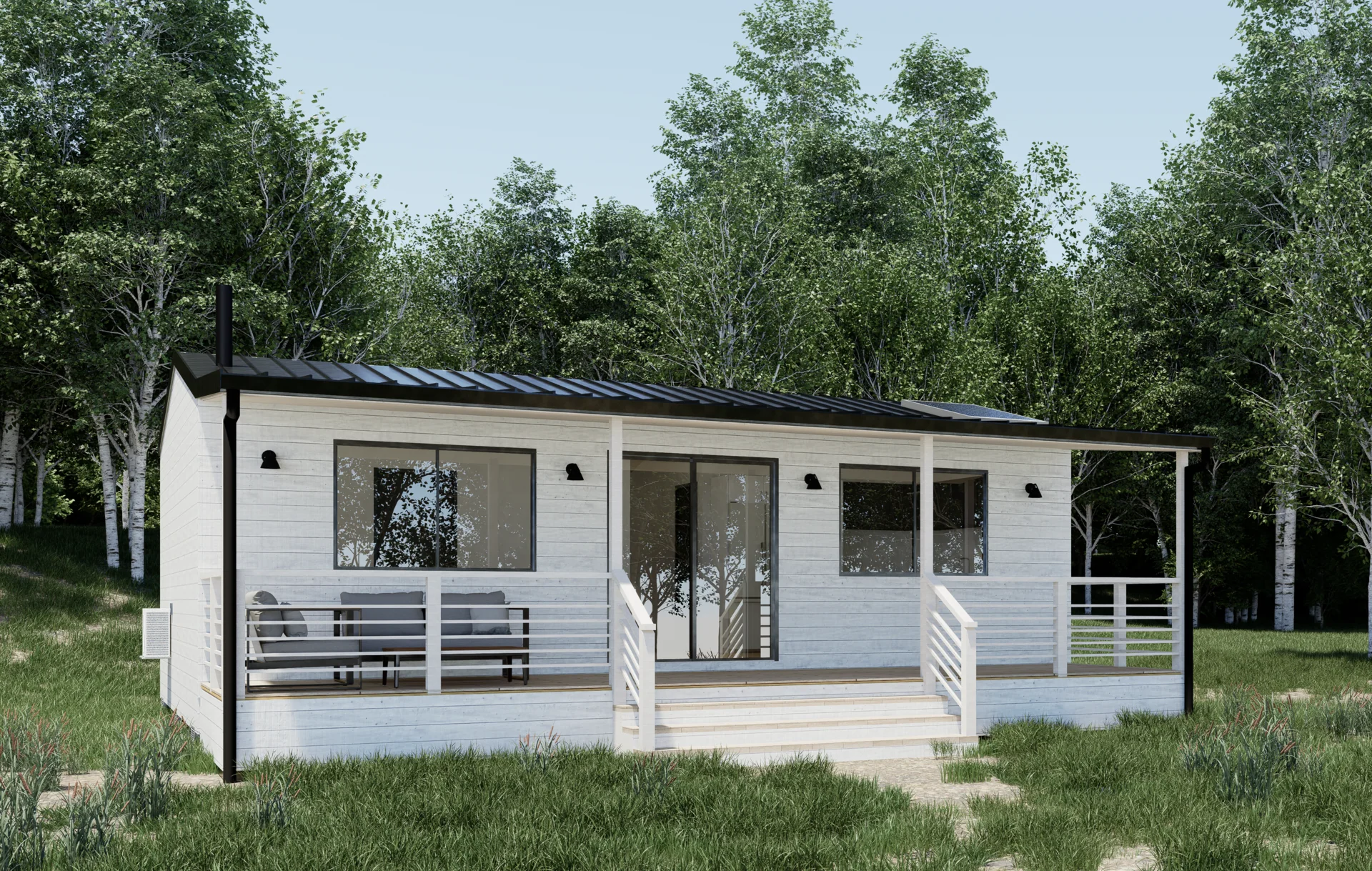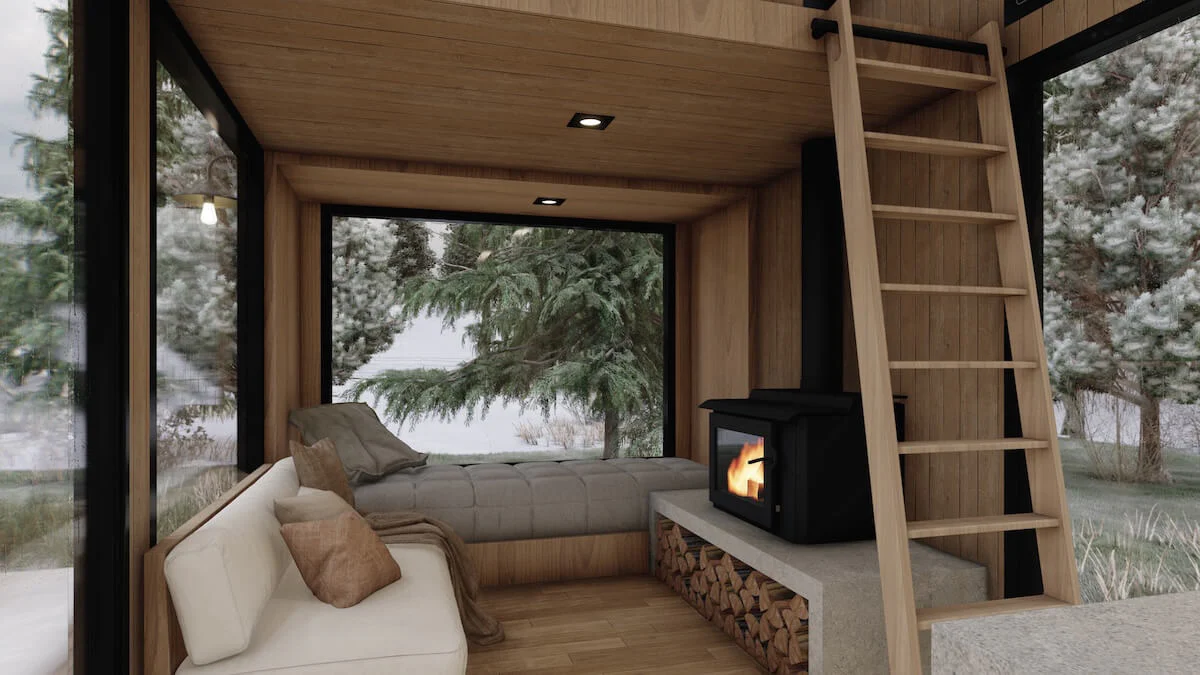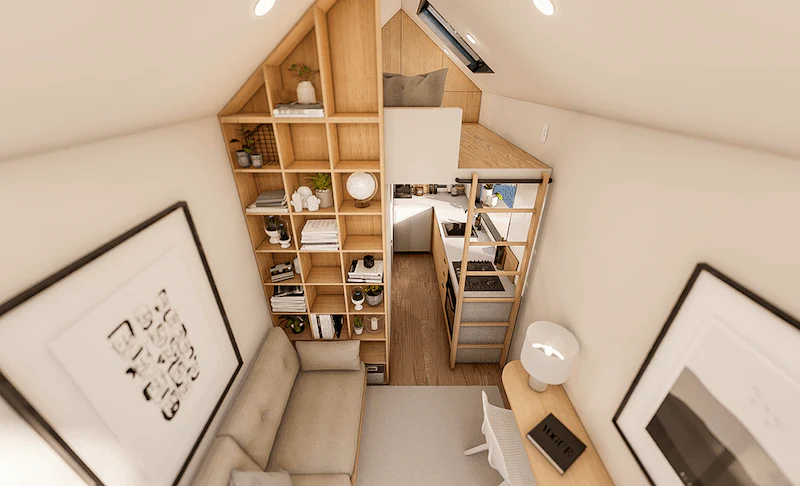Tiny House Villages: What To Know

You've probably heard of the tiny house movement, where people are shunning traditional homes for petite, portable versions. Imagine not just a single tiny house, but a whole village of them. It's a fascinating concept that brings about a myriad of questions.
1. Tiny house villages promote minimalism and community living.
2. Customizable homes optimize space with multi-use furniture.
3. Legal and privacy issues can complicate village living.
4. Tiny living reduces costs and environmental impact.
5. Communities often use sustainable, recycled materials.
What's it like living in such close quarters? How does the community aspect work? Can this be a sustainable solution to our housing crisis?
In the face of these queries, it's essential to fully grasp both the charm and challenges of such a lifestyle.
Understanding Tiny House Villages
You might be surprised to learn that a tiny house village is a community of small, self-contained homes often less than 400 square feet in size. These villages aren't just a collection of dollhouse-like structures, they're communities where people have chosen to live more simply.
Each house is typically built on a trailer bed for mobility, with all the essentials tucked neatly into the compact space. Living areas double as sleeping quarters, kitchens are shrunken down, and bathrooms are pared to the basics. Yet, despite their size, they're fully functional, often featuring creative storage solutions and multi-use furniture.
It's not about living with less, but rather making the most of what you've got. And it's this philosophy that unites tiny house villagers around the world.
Benefits of Tiny House Living
Living in a tiny house often offers numerous benefits, including lower living expenses, reduced environmental impact, and a simpler lifestyle. You'll find that your utility bills plummet as you're heating and cooling a significantly smaller space. You're also likely to spend less on furnishings and upkeep.
Secondly, you're doing your bit for the planet. Smaller homes require fewer resources to build and maintain, and they use less energy.
Lastly, living in a tiny house can free you from the clutter and stress of the modern world. You'll have less space to fill with unnecessary items, forcing you to pare down and focus on what's truly important. This minimalistic approach can bring a sense of calm and order to your life.
.jpg)
Designing Your Tiny Home
Diving into the design of your tiny home allows you to customize it to your unique needs and lifestyle. Begin by identifying your 'must-haves'. Do you need a workspace, a full kitchen, or perhaps a spacious sleeping loft? Prioritize these elements in your layout. Consider using multifunctional furniture to maximize space.
Lighting is crucial. Opt for plenty of windows to let in natural light and create an illusion of spaciousness. Don't overlook storage. Clever solutions like built-in shelves, under-bed storage, and wall hooks can keep your tiny house clutter-free.
Lastly, express your personality in the décor. Whether you prefer a rustic, modern, or bohemian style, your tiny home should reflect you. Remember, designing your tiny house is an exciting journey, not a chore.
Challenges in Tiny House Villages
While tiny house villages offer a sense of community and shared resources, they're not without their challenges. You may face legal hurdles as not all areas permit this type of living arrangement. Zoning laws and building codes can be restrictive and complex, potentially causing delays in setting up your tiny home.
Your privacy could be compromised due to close proximity to neighbors. You'll also have to adapt to smaller living spaces, which could be a tough transition if you're used to larger homes.
Sustainability and Tiny House Villages
Despite these challenges, you'll find that tiny house villages actually pave the way for a more sustainable lifestyle. They're designed with efficiency in mind, using fewer resources and producing less waste. This means you'll save on utilities while reducing your carbon footprint.
Moreover, these communities often utilize renewable energy sources, such as solar panels, further decreasing their environmental impact. They're also built from sustainable materials, often repurposed or recycled, which limits deforestation and waste in landfills.
Lastly, the communal aspect of these villages promotes shared resources and less consumption overall. So, by opting for a tiny house village, you're not just choosing a home, you're choosing to take a stand for the environment.
Average Cost of a Tiny House in a Village
You're asking about the average cost of a tiny house. It varies greatly, but the price typically ranges between $30,000 and $60,000.
However, the final cost can change based on design, materials, and labor.
Pet Restrictions in Tiny House Villages
Yes, there're usually pet restrictions.
It's dependent on the specific rules of the place you're residing.
Some may have size or breed restrictions, while others may limit the number of pets you're allowed to have.
Kind of Insurance Needed for a Tiny House
You'll need homeowner's insurance for your tiny house, similar to a regular home. It'll cover damage to the house, your belongings, and liability.
However, it's essential to check with insurance providers for specific coverage details.
Tiny House Village As a Primary Residence
Yes, you can make a tiny house your primary residence.
It's crucial to check local zoning laws first, though, as they'll dictate if you're allowed to live in such a dwelling year-round.
Utilities Work in a Tiny House Village
In your tiny home, utilities work much like any other residence. You've got electricity, plumbing, and sometimes even gas.
These are often connected to main lines, but solar panels and composting toilets can be used too.
Conclusion
So, you've explored the exciting world of Tiny House Villages. They offer a plethora of benefits, from lower expenses to a simpler lifestyle. Sure, you'll face challenges, but designing your unique tiny home and contributing to a sustainable future can be rewarding.
Take the plunge, embrace the compact life, and become part of a community that values resourcefulness and environmental consciousness. After all, big joys can come in tiny packages!









